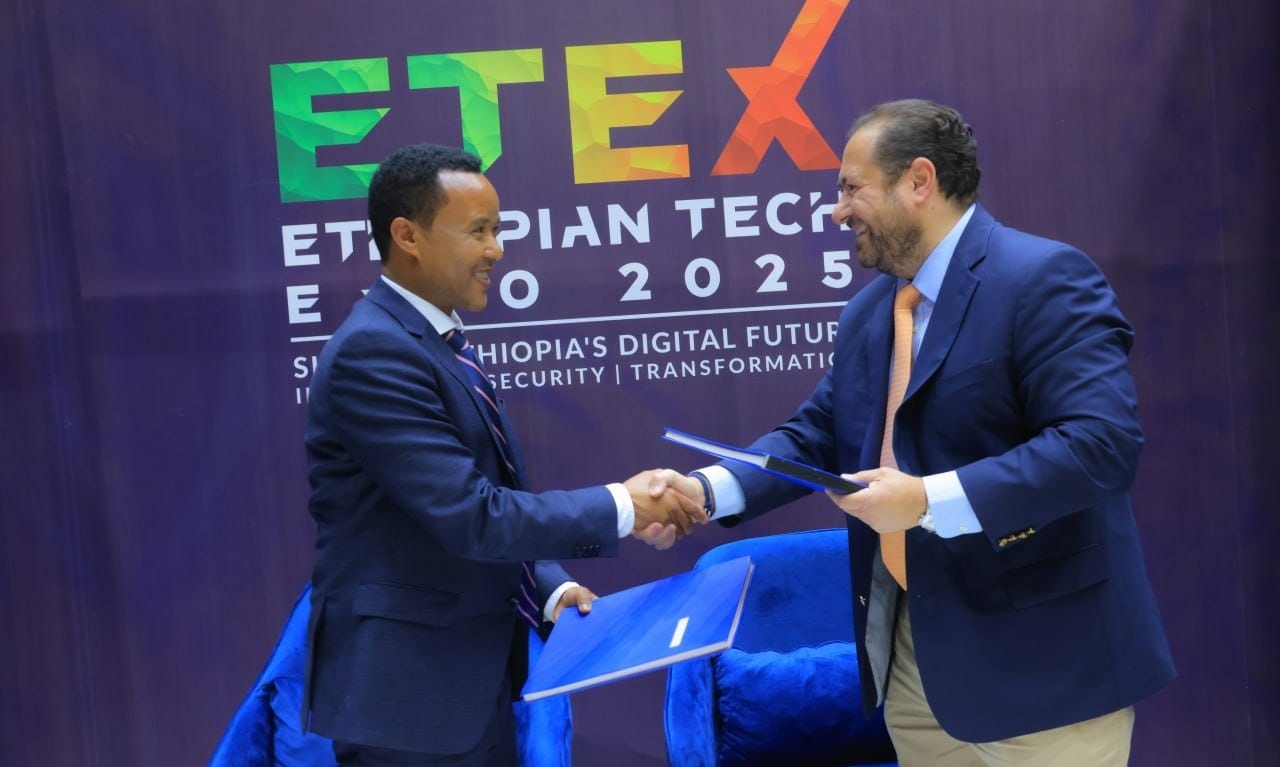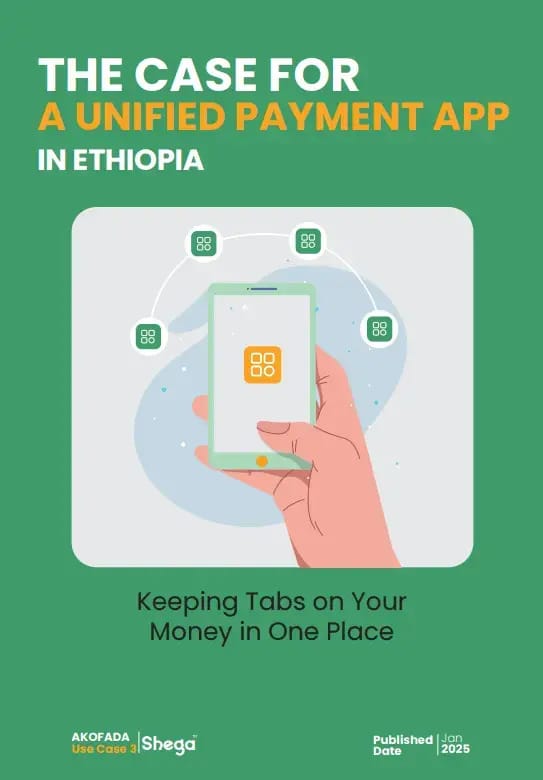Top Stories of the Week
CBE Pledges 120 Billion Birr to Finance Housing for 41,000 Government Employees in Addis Ababa
Can Ethiopia’s E-commerce Startups Survive a Telecom Giant’s Entry?
Wingu Africa, Ethiopian AI Institute Announce 4.5 Million Birr Worth of Infrastructure Support for Local AI Startups
Data Makes the Invisible Visible: Michael Schlein on Leveraging Technology for an Inclusive Financial Architecture
Ethiopia Unveils FaydaPass Digital Wallet
At Shega, we are not just a media company. We equip businesses, organizations, investors, and policymakers with the tools they need to make informed decisions.
If you're looking to elevate your communication and marketing or tap into our insights, market research, and advisory services, we’re here to help.
CBE Pledges 120 Billion Birr to Finance Housing for 41,000 Government Employees in Addis Ababa

The Commercial Bank of Ethiopia (CBE) has announced a 120 billion birr financing initiative aimed at addressing the housing needs of over 41,000 government employees in Addis Ababa.
This initiative operates under a 25/75 cost-sharing scheme, wherein beneficiaries contribute 25% of the housing cost, with the remaining 75% financed through long-term loans provided by CBE.
The Addis Ababa City Administration has pledged to expedite the construction process. Read more.
Wind Turbines in Assela Begin Electricity Supply
The first turbines at the Assela 100 MW wind farm have begun supplying electricity to the national grid, marking a major step in the country’s renewable energy expansion. Read more.
Shega Exclusive Interview- Data Makes the Invisible Visible: Michael Schlein on Leveraging Technology for an Inclusive Financial Architecture

Nearly 2 billion people are still excluded from the financial system. The nonprofit Accion, led by CEO Michael Schlein, is tackling this challenge, investing in over 267 financial service providers across 75 countries and reaching more than 440 million people.
Now deepening its presence in Ethiopia, Accion is partnering with Dashen Bank, Kifiya, and others to unlock inclusive innovation.
During his visit to Addis Ababa last week, Michael spoke with Shega's Etenat Awol about Accion’s strategy, Ethiopia’s fintech potential, and how data and digital tools can build a more inclusive financial future. Read more.
IMF Moves Forward on $3.5 Billion Program Review for Ethiopia
The International Monetary Fund expects its board to consider the third review of Ethiopia's $3.4 billion programme within the set timeline, a spokesperson said, a key step for the country to advance its programme and receive cash from the fund. Read more.
What’s on Our Mind
……………Development for Whom?
While scrolling LinkedIn I come across a daring brief reflection on the pitfalls of relying on averages in development economics. It highlighted a concept called the ergodicity problem, which reminds us that average gains often obscure the risks faced by individuals.
This rings true. The language of “averages” in development often erases the lived realities of people on the margins. In Ethiopia as in much of Africa the “average progress” projected through GDP growth obscures a deeper structural precarity.
A new report by ActionAid, titled The Human Cost of Public Sector Cuts in Africa, offers sobering evidence: crippling budget cuts have left public sector workers across the continent underpaid, overworked, and struggling to make ends meet.
Reading the study cuts through the abstractions of economic policy. Across Ethiopia, Ghana, Kenya, Liberia, Malawi, and Nigeria, austerity measures have hollowed out public education and healthcare systems. Over the past five years, budget cuts have resulted in overcrowded classrooms, some with up to 200 students severe medicine shortages, and chronic understaffing.
In Ethiopia, 100% of teachers surveyed reported a decline in classroom infrastructure, and 96% said they hadn’t received any professional training in the last 3–5 years. Among health workers, 97% reported that their wages were insufficient to meet basic needs, alongside widespread burnout and worsening conditions. Meanwhile, more than 75% of low-income countries now spend more on servicing external debt than on healthcare.
These trends unfold in parallel with the governments shift from state-led development to market liberalization and debt restructuring packaged as “homegrown economic reform.” The federal government’s latest ratified budget signals a clear tilt toward urban infrastructure, digital glamor, and military spending, while allocations for rural livelihoods, public schools, and health systems have seen little expansion if not outright neglect.
If development promises resilience, why are its shock absorbers education, health, care being stripped away? So, as Ethiopia and much of Africa embrace reforms framed as “homegrown,” we must confront a hard question: development for whom? Who bears the cost of austerity, and who benefits from the recovery?
Can Ethiopia’s E-commerce Startups Survive a Telecom Giant’s Entry?

Startups in Ethiopia’s e-commerce sector are facing a new reality: a well-funded, state-backed competitor with reach, logistics, and mobile money integration in the form of Zemen Gebeya.
With over 300,000 visits on day one, launched by Ethio Telecom, the Platform is not just another player. It’s a potential market-definer.
Some founders warn of monopolistic risks. Others are eyeing partnership opportunities. Can legacy startups survive, adapt, or will they fold? Read more.
Receive Honest News Today
Join over 4 million Americans who start their day with 1440 – your daily digest for unbiased, fact-centric news. From politics to sports, we cover it all by analyzing over 100 sources. Our concise, 5-minute read lands in your inbox each morning at no cost. Experience news without the noise; let 1440 help you make up your own mind. Sign up now and invite your friends and family to be part of the informed.
Wingu Africa, Ethiopian AI Institute Announce 4.5 Million Birr Worth of Infrastructure Support for Local AI Startups

Wingu Africa, a private data center operator, has partnered with the Ethiopian Artificial Intelligence Institute (EAII) to provide in-kind infrastructure support valued at 4.5 million birr to five local AI-focused startups, including Yene Health, Omishtu-Joy, LMS for Africa, Guzo Tech, and Addisway Technology Solutions.
Under the agreement, the selected startups will gain access to Wingu’s Tier III-certified data center facilities in Addis Ababa, including high-performance computing, colocation services, and private cloud resources.
The package also includes access to Wingu’s international network and up to one year of co-product development support, according to Feven Dagnachew, Country Director of Wingu Africa. Read more.
NBE Sets Four Percent Ceiling on Foreign Exchange Fees
The National Bank of Ethiopia (NBE) issued a new foreign exchange market directive on May 20, 2025, that caps commercial banks’ forex service fees at a maximum of four percent. Read more.
The Case for a Unified Payment App in Ethiopia

This report explores the potential benefits and feasibility of a unified payment application in Ethiopia—one that aggregates all financial accounts into a single platform, reducing the need for multiple standalone applications. It aims to inspire innovators and service providers to develop such a solution.
By addressing the current fragmentation in mobile banking and digital payment services, a unified app could significantly enhance the user experience and improve the efficiency of digital transactions in Ethiopia. This, in turn, could foster greater financial inclusion, increase financial literacy, and drive wider adoption of digital financial services. A unified payment app would simplify and streamline financial transactions by allowing users to access multiple bank accounts through a single interface.
Smart City Push: E-School Portal to Cover All Public Schools in Addis Ababa by Next Year
The Addis Ababa City Innovation Bureau is working to onboard all public schools onto its E-school management portal by next year, paving the way for citywide digital registration. Read more.
Ethiopia Unveils FaydaPass Digital Wallet
Ethiopia has launched what it calls the FaydaPass wallet, the latest move in its digital public infrastructure (DPI) program aimed at speeding up financial inclusion as well as verification for access to a number of other government services.
Tech5 and payments giant Visa supported the country in the development of the wallet, the former providing its T5-Airsnap and T5-OmniMatch systems, according to a joint announcement shared on May 21.
According to the developers and owners of the FaydaPass wallet, the platform has been built to serve “a diverse and inclusive user base” and to address critical digital Know Your Customer (KYC) verification needs.
Obtaining a digital ID using the wallet will be easy and streamlined, which means that users can simply download the official app and request their digital ID credential through it. Read more.

